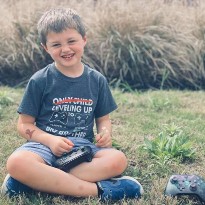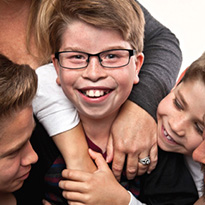Link’s Story: How His Family Found Care for His Congenital Diaphragmatic Hernia (CDH) at Children’s Memorial Hermann Hospital, a Leader in CDH Care
When Melanie Allen went in for her routine 20-week anatomy scan with her husband, Andy, she expected to see their healthy baby boy growing strong. Instead, the Greenville, Texas couple learned that their son, Link, had congenital diaphragmatic hernia (CDH), a rare, life-threatening condition that...





